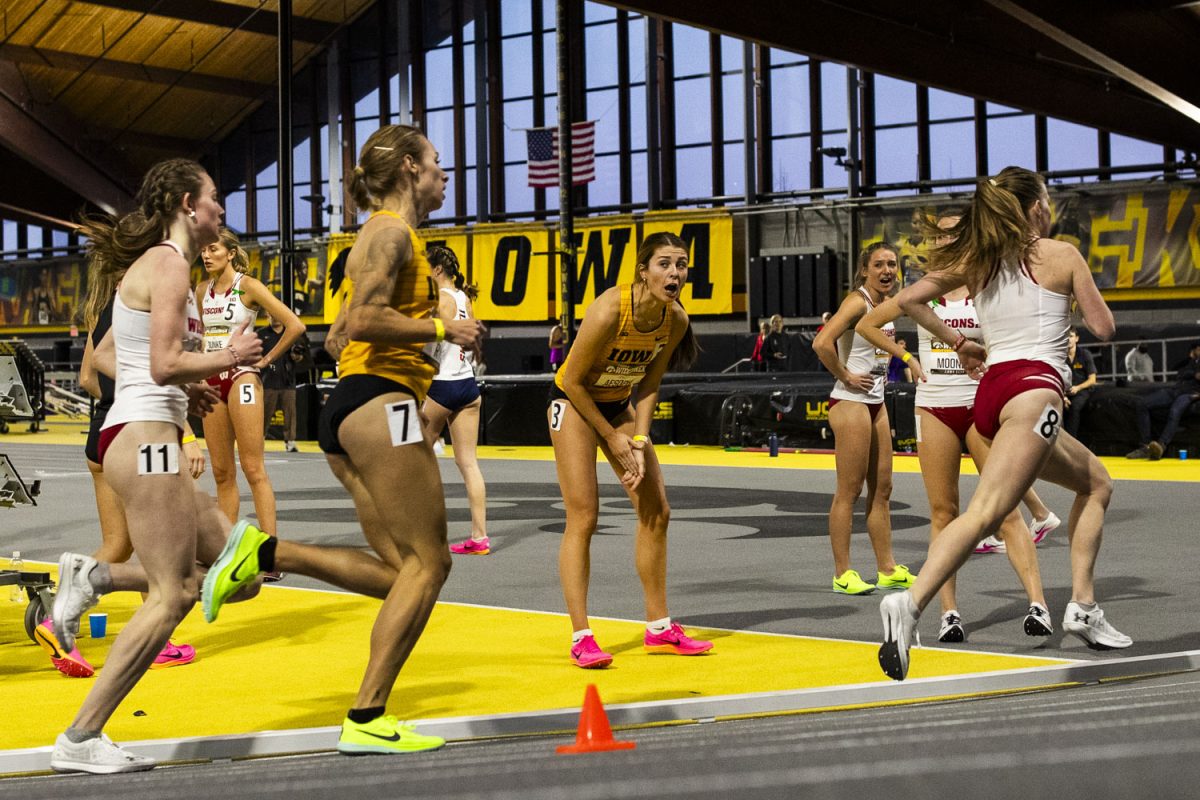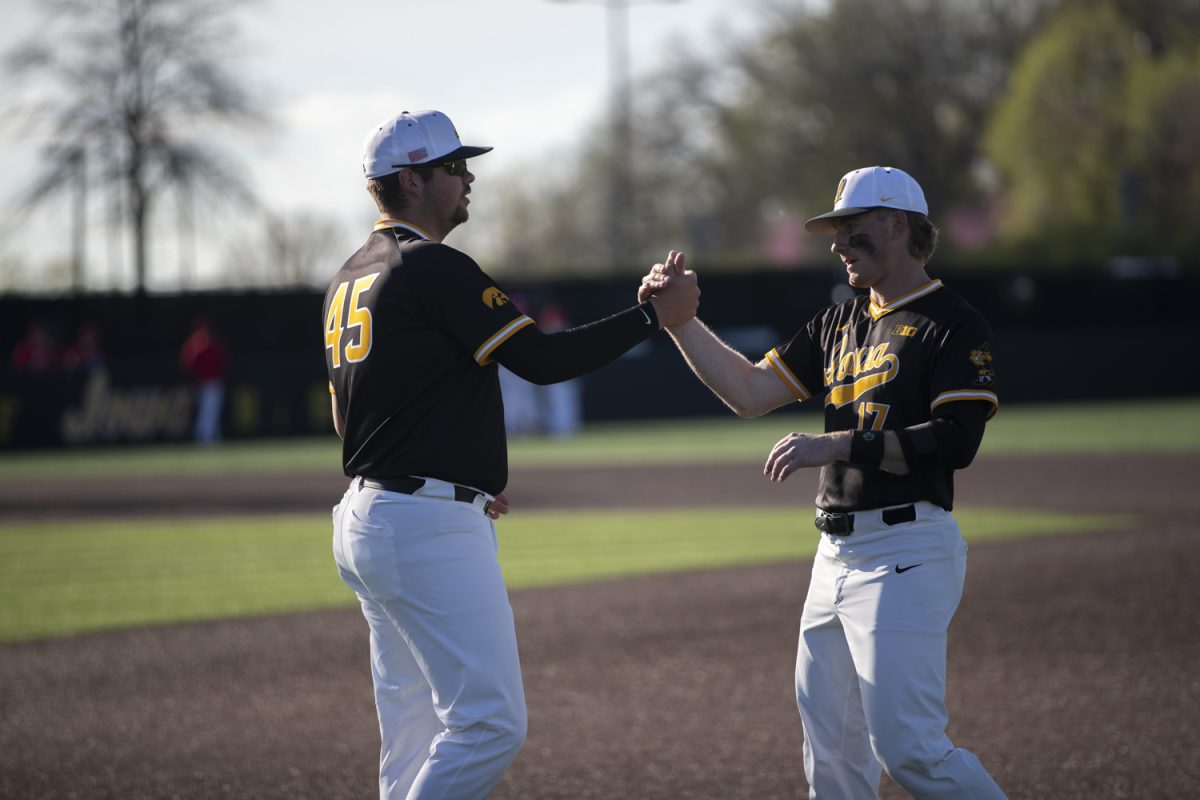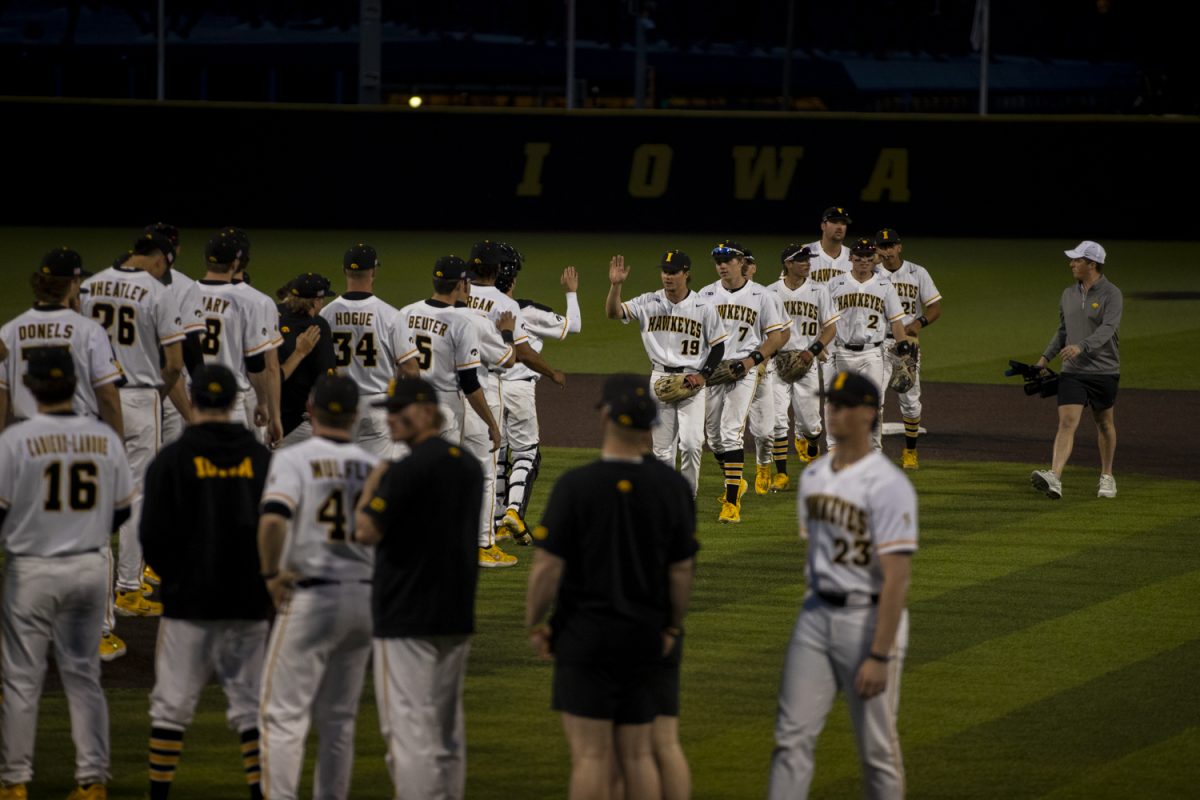The annual Iowa Track and Field/Cross-Country summer camp is under- way, with both the men’s and women’s coaching staffs stressing a solid set of fundamentals to potential future Hawkeyes. It consists of 48 campers and runs through June 25.
The campers will be busy throughout the week; the typical schedule includes waking up at 6:30 a.m. and going to bed at 11 p.m., with a full slate of activities planned in-between.
While the campers will often be split up according to their various disciplines (sprinters, distance runners, throwers, hurdlers, and jumpers), they will be given a similar foundation to work with.
Iowa assistant coach Christi Smith, the 2000 NCAA heptathlon champion while at Akron, works with high jumpers, pole vaulters, and those in combined events.
“It’s just the fundamentals of track and field,” she said. “Sprint mechanics, hurdle mechanics, just a strong foundation of the collegiate setting and a positive work environment for the young students.”
While the Hawkeye coaches are stressing the basics on the track, they will look to their support staff to teach the young athletes about other aspects of life.
Guest speakers Doug West and Rusty Burney will be featured, and they plan to focus on such topics as nutrition and weight training. West is an associate director of Athletic Training Services for Iowa, and Burney is an assistant strength and conditioning coach.
While the importance of proper basic techniques and habits will be stressed, the coaches do plan on mixing in some new methods.
Scott Cappos, the Hawkeye coach of the throwers, emphasized his goal to help the athletes have fun while learning new ways to improve.
“The two things we want to emphasize in the camp is having fun and learning things you can take back to your program,” he said. “Each of us has his own teaching and coaching style, and we try to bring those methods to the camp. … We try to get them to expand their knowledge and give them the opportunity to learn new things and hopefully they can take that back to their coaches and talk about it.”
The athletes attending the camp aren’t the sole beneficiaries, however; the coaches will seek to promote their programs through their teachings. Smith and Cappos agreed running a successful summer camp could benefit them when they try to recruit talent.
Layne Anderson, the head coach of the women’s track and field and cross-country teams, also sees the summer camp’s long-term benefits.
“It helps establish community relations between people in the university and people outside the university,” he said. “[It] gives us a chance to work with some young kids who have aspirations in the sport of track and field and cross-country.”






